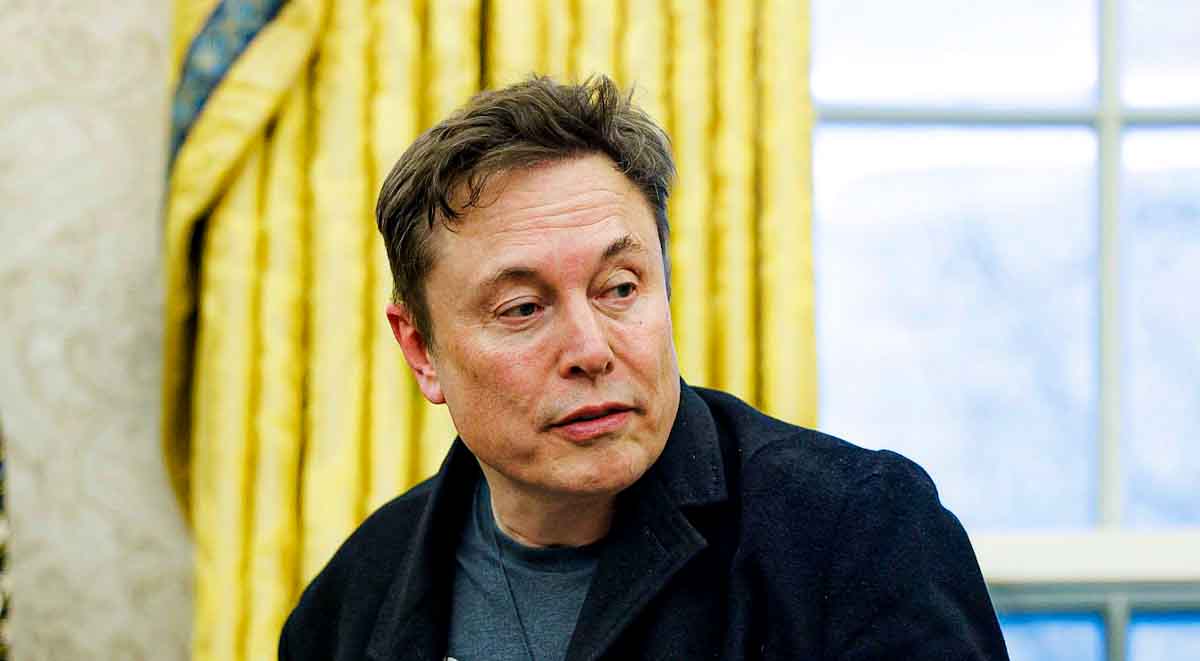A federal judge has rejected a lawsuit brought by 14 Democratic-led states seeking to prevent billionaire entrepreneur Elon Musk and the Department of Government Efficiency (DOGE) from accessing federal data and overseeing government layoffs.
The decision, handed down by U.S. District Judge Tanya Chutkan, marks a significant legal victory for Musk and the White House amid growing concerns over executive authority and government restructuring.
🚨🇺🇸JUDGE REFUSES TO BLOCK ELON’S GOVERNMENT ROLE
A federal judge rejected a Democrat-led lawsuit trying to stop Elon and the Department of Government Efficiency from accessing federal data or overseeing layoffs.
Judge Tanya Chutkan ruled there is no legal basis to block him… pic.twitter.com/aoOFtN3NH4
— Mario Nawfal (@MarioNawfal) February 19, 2025
Background of the Lawsuit
The lawsuit, filed in late January 2025, argued that Musk’s involvement in DOGE—a newly formed federal agency tasked with streamlining government operations—exceeded legal and constitutional boundaries.
The plaintiffs contended that Musk’s role was granted without congressional approval and that his influence over personnel decisions within federal agencies posed a risk to government stability.
The states, led by California and New York, sought an emergency injunction to bar Musk and DOGE from making unilateral decisions about workforce reductions and data access. Their legal team argued that the restructuring efforts violated due process and could result in mass terminations without proper oversight.
Judge Chutkan’s Ruling
In her ruling, Judge Chutkan determined that the plaintiffs failed to present sufficient evidence to justify an immediate injunction. While acknowledging concerns about executive overreach, she emphasized that there was no clear legal basis to block DOGE’s operations at this stage.
“The court recognizes the gravity of the plaintiffs’ claims,” Chutkan wrote in her decision. “However, an emergency injunction requires clear and convincing evidence of imminent harm, which has not been sufficiently demonstrated.”
While the ruling does not dismiss the lawsuit outright, it allows DOGE and Musk to continue their work while legal challenges proceed. The judge left open the possibility that the case could succeed on different legal grounds as more evidence emerges.
Implications for Government Operations
The ruling grants Musk and DOGE continued authority to implement cost-cutting measures across federal agencies. The White House has defended the initiative, stating that it is necessary to eliminate bureaucratic inefficiencies and reduce government spending.
White House Press Secretary Emily Carter reiterated that Musk is not a formal government employee but rather a senior advisor with expertise in efficiency and automation. “Mr. Musk’s role is advisory in nature, and his contributions align with the administration’s commitment to fiscal responsibility,” Carter said in a statement.
Despite these assurances, DOGE’s actions have already led to significant changes. Multiple federal agencies have reported staff reductions, program terminations, and restructuring efforts aimed at optimizing government operations.
The abrupt closure of the John F. Kennedy Presidential Library and staffing cuts at the National Park Service have drawn sharp criticism from lawmakers and federal employee unions.
Reactions from Lawmakers and Stakeholders
The ruling has sparked a polarized response from lawmakers and political analysts. Supporters of the administration’s efforts argue that government downsizing is long overdue and that Musk’s involvement brings much-needed innovation to Washington.
“This is a victory for taxpayers,” said Senator Tom Reynolds (R-TX). “Elon Musk is a proven leader when it comes to efficiency and technological advancement. Government waste has been out of control for decades, and it’s time for bold action.”
On the other hand, critics warn that unchecked authority over federal layoffs and data access could have dangerous consequences. Senator Elizabeth Warren (D-MA) condemned the ruling, calling it a “reckless endorsement of executive overreach.”
“This decision gives one unelected billionaire unprecedented influence over our government,” Warren said. “We cannot allow private interests to dictate the future of public institutions.”
Federal employee unions have also expressed deep concern about the ruling. The American Federation of Government Employees (AFGE) issued a statement warning that continued layoffs would destabilize essential government services.
“Public servants who have dedicated their careers to serving this country are being dismissed without due process,” said AFGE President Mark Jones. “This is not ‘efficiency’—this is dismantling our government piece by piece.”
What’s Next?
While Judge Chutkan’s ruling allows DOGE and Musk to continue their work, the legal battle is far from over. The states involved in the lawsuit have vowed to appeal the decision and continue pressing for greater oversight of the administration’s restructuring efforts.
Legal experts anticipate further challenges in the coming months. Constitutional scholars argue that if the case proceeds to the Supreme Court, it could set a precedent regarding the limits of executive power in government restructuring.
Meanwhile, Musk remains committed to his role within DOGE. In a post on X (formerly Twitter), he expressed confidence in the project’s mission, stating, “Government efficiency is long overdue. We’re just getting started.”
As the legal and political battles unfold, the future of DOGE and its impact on federal agencies will remain a focal point of national debate. The balance between efficiency and accountability will be tested as the Biden administration pushes forward with its ambitious reforms.
